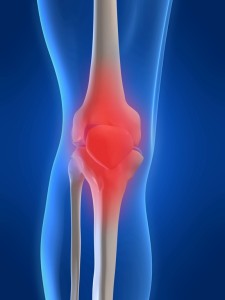If you ignore your pain it won’t always go away. Sometimes it will make things much worse. Did your son, daughter in law, spouse or bowling buddies just remind you of that last week? Well, they are not wrong. Reuters Medical reported in December of last year on a British Geriatric Society study titled A Longitudinal Study of Knee Pain in Older Men. The Journal reports” chronic knee pain is still considered a fairly benign disease by many, an ‘unavoidable’ consequence of ageing. This passive acceptance may be unnecessarily exposing older people to disability and serious co-morbidity (source: http://ageing.oxfordjournals.org/content/early/2013/12/05/ageing.aft188.abstract?sid=767c8821-4b55-46b5-839f-79d45be14e1e) The lead author of this project,  Marlene Franzen, is an associate professor of physiotherapy at the University of Sydney in Australia. “Chronic knee pain is not a ‘benign’ disease,” she told Reuters Health. “It does lead to a greatly increased risk of falls and developing mobility disability, and therefore increased risk of early mortality.” Her team’s conclusion: … patients should see their doctors for an effective and safe pain management strategy, and a physiotherapist for a recommended physical activity program … (http://uk.reuters.com/article/2013/12/20/us-knee-pain-idUKBRE9BJ0XT20131220) The Physiatrists at Michigan Spine and Pain could not agree with her more.
Marlene Franzen, is an associate professor of physiotherapy at the University of Sydney in Australia. “Chronic knee pain is not a ‘benign’ disease,” she told Reuters Health. “It does lead to a greatly increased risk of falls and developing mobility disability, and therefore increased risk of early mortality.” Her team’s conclusion: … patients should see their doctors for an effective and safe pain management strategy, and a physiotherapist for a recommended physical activity program … (http://uk.reuters.com/article/2013/12/20/us-knee-pain-idUKBRE9BJ0XT20131220) The Physiatrists at Michigan Spine and Pain could not agree with her more.
If you are a current patient of ours and knee pain develops as a new condition it is important to let your care team know details like onset, duration and severity of your symptoms. If knee pain is an on-going issue and something about your condition changes we can help you address the issue before pain begins to limit your everyday activities or mobility.
